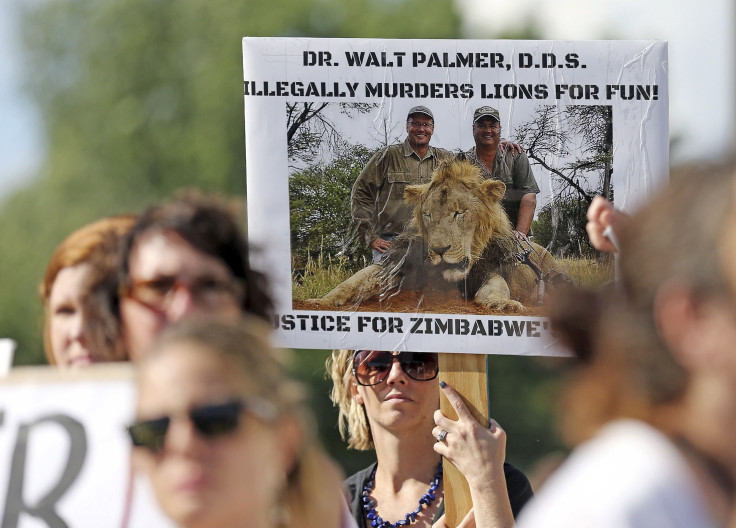Cecil The Lion: Walter Palmer Wanted To Shoot A Large Elephant Too, Claims Guide

Walter Palmer, the U.S. dentist who killed the lion Cecil in Zimbabwe, wanted to shoot a “very large elephant,” his guide and professional hunter Theo Bronkhorst told the Daily Telegraph Thursday. Palmer has gone underground amid an international outcry over the illegal hunt of the "iconic" lion.
Bronkhorst told the Telegraph that after killing the lion in Hwange National Park, Palmer asked him if he could find an elephant whose tusk weighed at least 63 pounds. "I told him I would not be able to find one so big, so the client left the next day," he said.
Prosecutors charged Bronkhorst Wednesday for failing to prevent Palmer from unlawfully killing Cecil. However, they are yet to charge Honest Ndlovu -- a second suspect and farm owner -- who has been named as an accomplice. Ndlovu appeared in court Wednesday.
The Zimbabwe Conservation Task Force said Tuesday that Palmer -- who paid $50,000 to kill Cecil -- and his group tied a dead animal to their car to lure the lion. According to the Safari Operators Association of Zimbabwe, drawing in animals with a bait is unethical. The association, of which Bronkhorst is a member, has revoked his license.
According to Bronkhorst, Cecil -- "a magnificent animal" -- was spotted at about 10 p.m. on July 1. He said Palmer shot an arrow at the animal after which it disappeared behind the tall grass.
"Bow and arrow wounds are different to gun wounds, and they don’t show much. But we couldn’t do anything that night," Bronkhorst told the Telegraph. After returning to the same place next day, Bronkhorst saw the collar around the lion's neck and realized that Palmer had killed Cecil.
"I was devastated," Bronkhorst said. "I could not have seen the collar at night. We would never shoot a collared animal. I was devastated, and so was (Palmer), we were both upset, and I panicked and took it off and put it in a tree. I should have taken it to [the Zimbabwe Parks and Wildlife Management Authority], I admit that. ... We took the head and skin, as the client had paid for the trophy."
Palmer, a trophy hunter from Minnesota, left Zimbabwe few weeks ago, according to media reports.
© Copyright IBTimes 2024. All rights reserved.






















